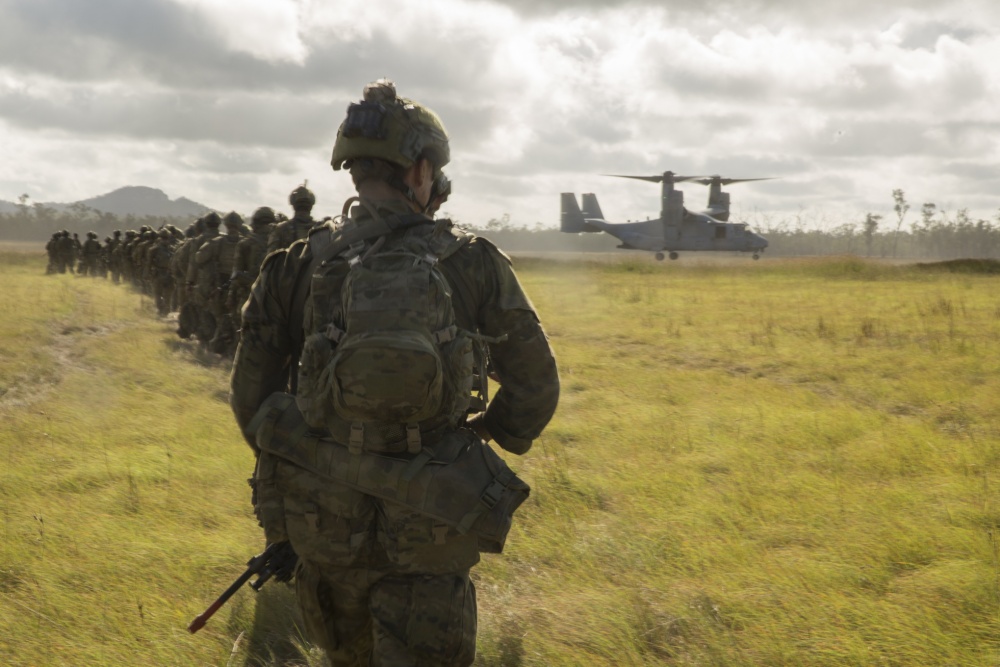
Discussions of burden-sharing among allies typically focus on the amount of money spent. Yet there is also an intellectual burden that needs to be distributed.
In April 2017, two relatively new leaders of global superpowers, US President Donald Trump and Chinese President Xi Jinping, held a two-day summit to build relations and discuss taking action on US concerns about North Korea. Ninety minutes before the formal dinner, however, Trump was reviewing operational plans for a missile strike on Syria over its use of chemical weapons. The attack naturally overwhelmed the meeting and the press coverage. China didn’t get the peer recognition it sought and the US missed out on a firm commitment from Beijing to help with Pyongyang. Once again the urgent had crowded out the important.
For policymakers, this scene of being stretched in several directions at once must feel like an ordinary Tuesday. As Eliot Cohen has commented, ‘American decision-makers are generally at least as talented as their counterparts, and often better served by their staff. The problem lies in that they are overwhelmed by the need to direct military operations in different parts of the globe, using different means, and to different ends.’ This overloading, he argues, ‘makes the challenges of wielding hard power as daunting, from the intellectual point of view at least, as they have ever been’.
In the two years since Cohen wrote those words, the intellectual burden of America’s leadership has only grown. In 2018 it was reported that the US had special forces deployed to 149 countries worldwide (the UN recognises 193 countries, to put that in perspective). In 2019 and in an example close to Australia’s concerns, the US 2020 National Defense Authorization Act called for a significant expansion of the membership of the Indo-Pacific Maritime Security Initiative. As Blake Herzinger has noted, even if the initiative is well meant, the proposed changes both increase the difficulty of this group achieving its purpose, and replicate leadership and initiatives by India in South Asia and Australia in the Pacific. As US Senator Lindsey Graham, of the Senate Armed Services Committee, has lamented, ‘We don’t know exactly where we’re at in the world, militarily, and what we’re doing.’
This is where Australia, as a ‘mate’, needs to help share the burden. While officials and scholars have long trotted out the indulgent line that the US looks to Australia for insight and leadership in Southeast Asia and the South Pacific, that claim has far less substance than it ought. That’s partly because Australia itself hasn’t always understood these regions as well as it should, and partly because the US is so unwilling to allow anyone else to do what it can. In the 1940s with the ANZAC Agreement and 1980s with the ‘Defence of Australia’ policy, Washington tried to overrule and reduce Australian initiatives that were—at least in Canberra’s eyes—not only compatible with but directly supportive of US interests.
Where Australia has significant initiatives, such as our Pacific step-up, we should insist on the US working through both us and Pacific states. We need Trump and his team to be able to look to the Pacific and know that Australia and the region are handling it. We will surely need US resources and involvement, but American officials have to trust that their Australian counterparts can tell them when and how they need to get involved—and not ask for involvement that isn’t absolutely crucial. It’s about finding ways to relieve the US of the intellectual burden of yet another region to worry about, and giving opportunities for the US—even if it’s just for a few weeks or months at a time—to focus elsewhere, confident that Australia is keeping a close eye on the situation.
None of this is easy. It speaks to a very different kind of trusting relationship between countries than is normally possible. And yet, if all the rhetoric about mateship is to come through, then sometimes that burden really does need to be shared, and the smaller friend trusted to do as they pledge and watch the other’s back.
Lest this talk of cognition and Trump gives rise to mirth, this is not an extended subtweet of the president’s intelligence. Far from it. The same mental burden overwhelmed Barack Obama, and if a different president takes office in 2021, without significant change they too will be overwhelmed. As the world grows more complex, we should not automatically assume that electing the ‘best and brightest’ will save us (and technocratic leaders such as Obama and Hillary Clinton need to stop running on that mistaken promise).
The simple fact is the US covers too much territory and tries to do too many things for its system of government to handle. This is not merely a financial but also an intellectual burden. Unless the US and its allies find ways to alleviate this cognitive burden, the US will struggle to focus on its core strategic interests and help protect its allies.

